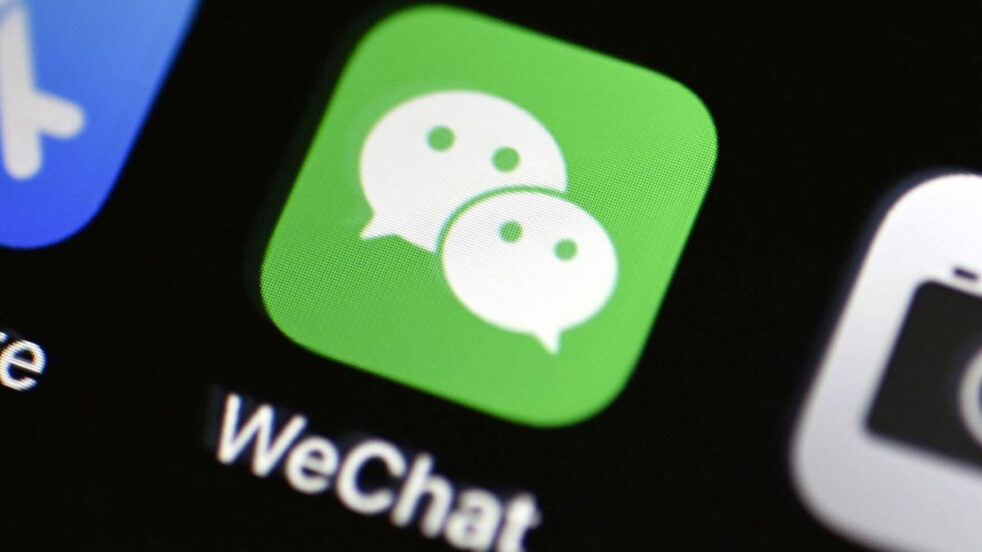The recent events surrounding TikTok read like a dramatic, three-part saga: its initial ban by the Trump administration, its acquisition by Oracle and Walmart, and now the uncertain state that it remains in. But substantially fewer people know about the other Chinese social media giant, WeChat, that has also been vying for the attention of US national security talks and a barrage of executive orders. If Tiktok is the slicker, better-looking younger brother, then WeChat is the older, more self-possessed sibling, with less notoriety but a broader audience at home. The New York Times called WeChat China’s true “Powerhouse App,” and for good reason. WeChat, owned by Chinese company Tencent, boasts over a billion users worldwide and over 3 million active monthly users in the US. It is the equivalent of Facebook Messenger, Twitter, Instagram, and Apple Pay rolled into one omnipresent service —and that’s an understatement of its utility in mainland China. Its mobile payment function has rendered credit cards and cash obsolete there, even normalizing street vendors selling meat and produce through virtual transactions.
I’m no national security expert, but it seems to me that there are several things wrong with the national measures being taken to eventually ban the app. While there is truth to WeChat promoting Chinese propaganda and its uses for social control, the premise of the ban — that WeChat is a national security threat because it collects data from Americans for the Chinese government and promotes fake news – is hypocritical. The idea that there be limits on free speech to “protect people’s privacy” is paternalistic and draconian, and assumes that users are so dim that they cannot discern for themselves what information deserves merit (notably not a stance taken by US social media networks).
The truth is that collecting and storing people’s data and spreading misinformation may very well be the intent of the Chinese government, but WeChat was modeled on the tactics and practices of Silicon Valley. To unilaterally declare a ban without acknowledging the role of tech giants like Facebook and Twitter in spreading serious misinformation does not project strength — one only has to look at the role Facebook played in the Rohingya genocide in Myanmar. It also makes little sense that an app with relatively small reach among U.S. residents would be considered a higher-priority action item than domestic terrorism incited by white supremacists, which the Department of Homeland Security recently called “the gravest terror threat” to our nation, encouraged by Russia.
This is not an attempt to distract from the very real problems posed by the Chinese government with a “what-aboutism” pivot to Russia. This opinion merely highlights the fact we are hardly in a position to accuse foreign social media networks as perpetrators of fake news. This action is emblematic of an administration that is too arrogant to publicly engage with our own problems of election meddling from foreign governments and privacy concerns from domestic companies in a constructive way.
It is an easy way to seem ‘tough on China’ in an election and pandemic year, without actually employing the high-level diplomacy and forethought that we have come to associate with the “leader of the free world.”
It is also deeply concerning for the immigrants and expatriates of the Chinese diaspora, who have relied on WeChat to maintain contact with friends and family across the world. Banning WeChat would also dissolve the countless smaller communities that Chinese American families have formed locally. It is also unclear, but possible, that Apple and Alphabet Inc. would be crippled by a partial US ban. According to Bloomberg, Apple relies on China for a fifth of its sales and a large portion of its manufacturing, and a ban of WeChat on Apple products would make them useless to Chinese consumers. Shang-Jin Wei, a Professor of Economics at Columbia University, has suggested that the US could order Tencent to “stop sending push notifications or advertisements to users registered with a U.S. phone number, or who are traveling in the U.S.,” or issuing a pop-up warning from the US government to anyone downloading the app.
At any rate, it seems that if we continue along this path, we are embracing isolationism at the expense of exhaustively vetting creative diplomatic and economic options.
